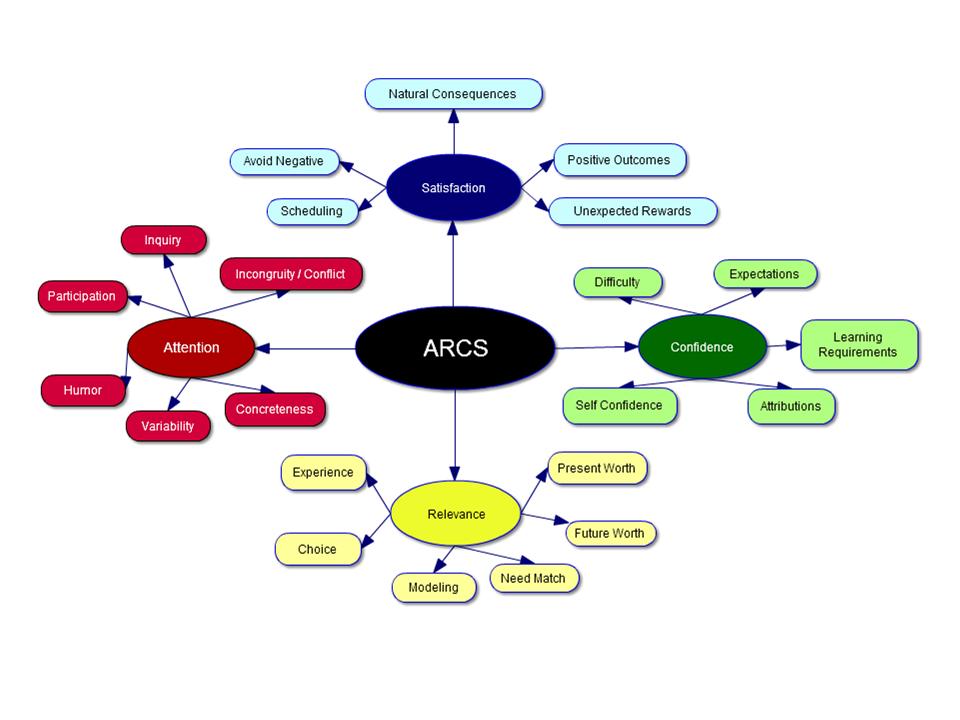Kellers Motivational Model

Keller's ARCS Motivational Model
Acronym
ARCS stands for: Attention, Relevance, Confidence, Satisfaction
Alternate name(s)
Keller's ARCS Theory of Motivation
Main construct(s)/factor(s)
Attention, Relevance, Confidence, Satisfaction
Concise description of theory
Originally designed to study how to effectively motivate learning. This theory is grounded in the Expectancy-value theory which purports that perceived success (expectancy) and perceived satisfaction of personal needs (value) drive motivation of an individual to perform an activity. Keller's ARCS Model believes that people will engage in an activity if they believe they will succeed at it and it will satisfy their personal needs. It consists of four factors that create and maintain motivation for learning in people and also strategies to achieve them.
Attention - Need for stimulation & variety - curiosity, boredom, arousal
Relevance - Desire to satisfy basic motives - needs, motives, attractions
Confidence - Desire to feel competent and in control - attributions, expectancies, self-efficacy
Satisfaction - Desire to feel good about oneself - intrinsic motivation, extrinsic incentives, equity
Modified from: [https://sites.google.com/site/motivationataglanceischool/arcs-motivation-model,
http://www.learning-theories.com/kellers-arcs-model-of-motivational-design.html,
http://www.personal.psu.edu/hoh5021/kb/motivation.htm]
Diagram/schematic of theory
Source: http://edel518spring2011.wikispaces.com/Hypermedia
Originating author(s)
John M. Keller (1979)
Seminal articles
Merrill, M. D. (1999). Instructional Transaction Theory (ITT): Instructional Design Based on Knowledge Objects. Instructional-Design Theories and Models: A New Paradigm of Instructional Theory, Vol. II. (pp. 397-424). Mahwah, NJ: Lawrence Erlbaum Associates, Inc.
Keller, J. M., & Suzaki, K. (1988). Use of the ARCS Motivation Model in Courseware Design. In D. H. Jonassen (Ed.), Instructional Designs for Microcomputer Courseware. Hillsdale, NJ: Lawrence Erlbaum Associates, Inc.
Originating area
Effective motivation of learning, Learning theory
IS articles that use the theory
Weibell, C. J. (2011). Principles of learning: A conceptual framework for domain-specific theories of learning. Available at [1]
Luo, M. M., Chea, S., & Chen, J.-S. (2011). Web-based information service adoption: A comparison of the motivational model and the uses and gratifications theory. Decision Support Systems, 51(1), 21-30. Elsevier B.V.
Links from this theory to other theories
External links
[2], Edu Wiki entry on Kellers Motivational Model
[3], Principles of Learning
Original Contributor(s)
Oluyomi Olufemi Kabiawu
Please feel free to make modifications to this site. In order to do so, you must register.
Return to Theories Used in IS Research
